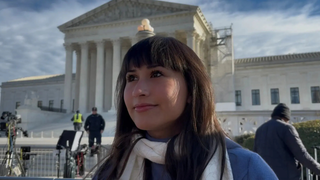Fox News Flash top headlines for September 1
Fox News Flash top headlines for September 1 are here. Check out what's clicking on Foxnews.com
As Americans celebrate Labor Day 2019, robots are stealing their jobs, as are immigrants, as are cheap imports from China. The first puzzle is: if all of these nefarious forces of free markets are stealing jobs, how is it that there are more Americans employed than ever before?
Today, there are over 151 million workers on U.S. payrolls. You might wonder if this is higher than the total before the last recession hit. Have we really recovered? Given that the previous peak employment was 138.4 million in January 2008 (which collapsed to reach 129.8 million two years later), the answer is yes.
Pessimists will respond that jobs are lower-paying (wrong) or that poverty is worse (wrong) or that inequality is as bad as ever (right?). The great economist Joseph Stiglitz explains that in the past 40 years, “the income share of the top 0.1 percent has more than quadrupled and that of the top 1 percent has almost doubled, that of the bottom 90 percent has declined.” That’s a fact. Yet over the same time, children are healthier, the air is cleaner, computers were invented and are enriching lives. Life is better, even for America’s poor. So the second puzzle is this: Does material inequality matter?
JOHN STOSSEL: THERE'S NOTHING WRONG WITH INEQUALITY. HERE'S WHAT IS WRONG
The third puzzle follows directly, and it begs the question: What is income not measuring? Liberals and conservatives often say the same thing to me about my profession: economics cannot measure the things that really matter. Liberals say the environment and health care. Conservatives say national security and police protection. Liberals say women’s rights, gay rights, social justice. Conservatives say gun rights, religious freedom, patriotism. These things cannot be measured but they are profoundly valuable.
More from Opinion
- Rebecca Costa: Let's stop debating 'income inequality' and get real about what's happening to America's workers
- Kay Coles James: Our colleges need to cultivate critical thinking, scrap radical left conformity
- Newt Gingrich: Mike Rowe has incredible Labor Day insights on the importance of labor and American workers
The idea of how to measure value puzzled Socrates and Plato, and is still unresolved. Centuries ago, the great philosopher Adam Smith wrote the first book about we now call economics. He asked a question that led to the law of supply and demand, which is: What is more valuable, a bucket of diamonds or a bucket of water? This is the fourth puzzle.
With a better understanding of value, the public policy tradeoffs and debates will shift radically. The narrative that income inequality is making Americans miserable will no longer hold water, so to speak.
CLICK HERE TO GET THE OPINION NEWSLETTER
If you’re lost at sea, a bucket of fresh water is valuable indeed. Yet in a city market, the bucket of diamonds can be sold for far more money. Smith was making a vital point that an abundant supply of a thing reduces its “value in exchange” but not its “value in use.” Since he was austere, Smith sneered at the ornamental frivolity of gems. “A diamond, on the contrary, has scarce any value in use,” wrote the Scottish philosopher in his comfortable, brown cottons.
The mystery of value is resolved, as is the uselessness of economists to artists and poets. There is no limit on the supply of what matters most: love, safety, health, and joy. Thus, it is impossible to value things that cannot be bought and sold.
Or is it? Maybe immaterial value can be measured, but not by market prices. And here is the fifth and final puzzle: Is there some new way to measure the dollar’s worth of an intangible thing?
I’ve decided to run a national contest asking dozens of questions about the value of intangible things. In fact, the contest will offer $100 rewards to the 100 participants who have the most insightful answers. The basic idea is that individuals are asked not how much they would pay for a thing such as free speech or access to natural parks, rather the inverse. How much would you be willing to accept in cash to give up free speech or natural parks?
Paying people not to use something is an entirely different way of establishing its value. The price of your indoor plumbing is not what I care about, it’s how much you are willing to accept to give it up for a year. Clean tapwater costs about half a penny a gallon. Surely you wouldn’t accept $500 to give it up for the year. My mother, when asked, said she wouldn’t give up air conditioning in central Florida next year for less than $8 million!
CLICK HERE TO GET THE FOX NEWS APP
With a better understanding of value, the public policy tradeoffs and debates will shift radically. The narrative that income inequality is making Americans miserable will no longer hold water, so to speak. Likewise, we won’t be able to ignore the value of the environment (or the military) just because GDP doesn’t measure the happiness and security they provide.
If you’d like to participate in the contest, and help advance a deep understanding about what’s really valuable in our country, take 15 minutes to fill out the online survey at www.hoover.org/kanestudy. You might just win $100, so long as you enter before midnight on Sept. 9. Win or not, participants will all help spark a little revolution in economics.









































